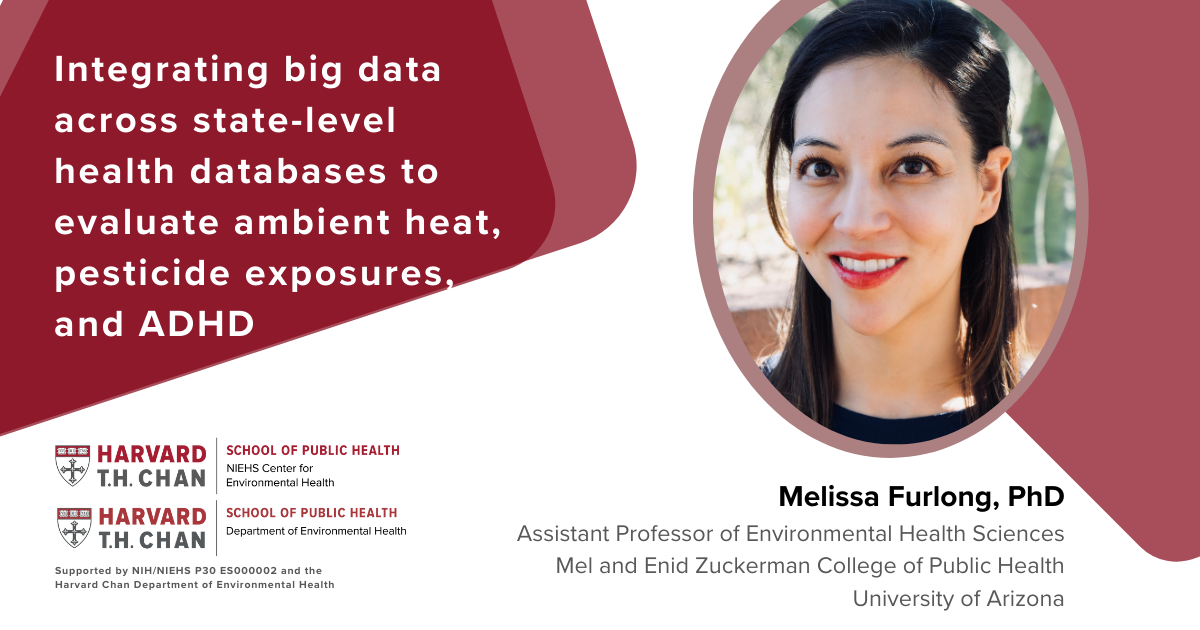
Integrating big data across state-level health databases to evaluate ambient heat, pesticide exposures, and ADHD with Melissa Furlong, PhD

Please join the Harvard Chan NIEHS Center for Environmental Health and the Department of Environmental Health for a talk by Melissa Furlong, PhD, of the University of Arizona. Dr. Furlong will discuss “Integrating big data across state-level health databases to evaluate ambient heat, pesticide exposures, and ADHD.”
Dr. Furlong is an environmental epidemiologist who studies the chronic health effects of environmental contaminants, with an emphasis on pesticides and neurological outcomes. She is an Assistant Professor of Environmental Health Sciences at the Mel and Enid Zuckerman College of Public Health, University of Arizona. She holds a PhD in epidemiology from the University of North Carolina at Chapel Hill, a Master’s in Public Policy from Duke University, and a B.S. in Psychology and Neuroscience, also from Duke University. She is the recipient of a Pathway to Independence Award from NIEHS (K99/R00).
Dr. Furlong is the Co-Director of Research Focus Group 1 and on the Internal Advisory Board of the Southwest Environmental Health Sciences Center. Her primary research interests include developing and implementing novel approaches in big data to investigate associations between environmental contaminants and longitudinal chronic health outcomes, particularly neurological health. She uses a variety of methodological approaches to achieve these goals, including the use of -OMICs technologies (particularly metabolomics and epigenomics), as well as developing and linking large exposure databases with state-wide health outcomes databases, including Medicaid. With researchers in Atmospheric Sciences and Geography, she is developing a geo-spatial model of atmospheric dispersions of pesticide applications in the state of Arizona to estimate exposure to pesticide drift during critical windows of development. She also uses metabolomic and epigenetic approaches to study long-term, subclinical health effects of occupational and environmental exposures in firefighters.
This event will be held in person (Kresge 201) and via Zoom. Register here
Speaker Information
Dr. Melissa Furlong

Organizers
ⓘ Harvard Chan School hosts a diverse array of speakers, invited to share both scholarly research and personal perspectives. They do not speak for the School, and hosting them does not imply endorsement of their views, organizations, or employers.